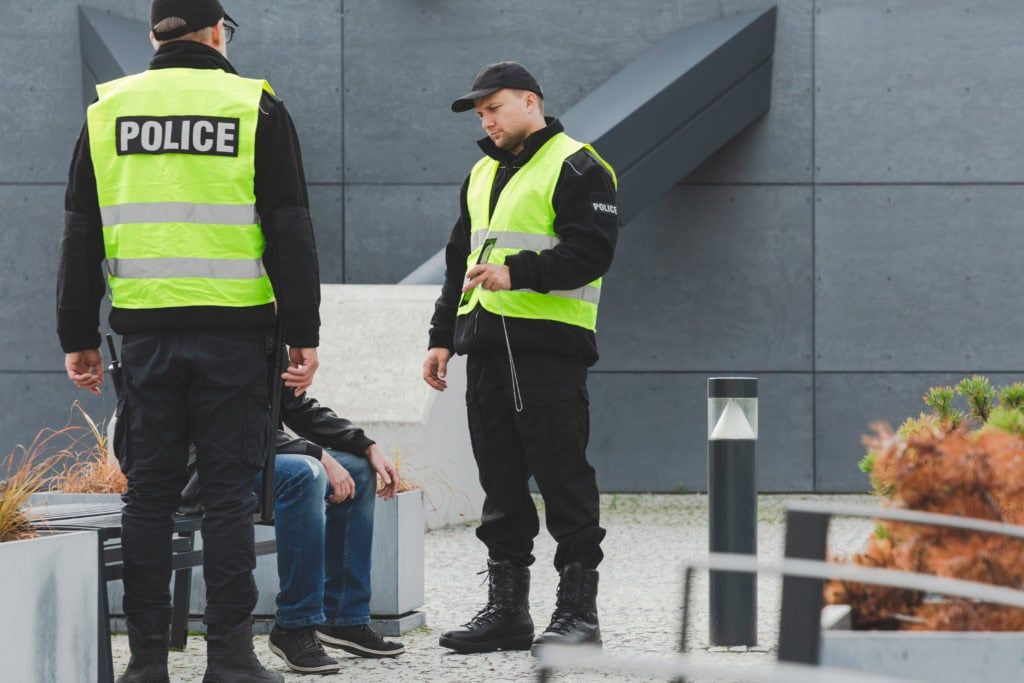Is it a Crime to Falsely Identify Yourself to the Police?

It is possible that one could be charged with the criminal offence of Obstructing Justice if they falsely identify themselves or refuse to identify themselves to the police.
Obstruction of Justice Under the Criminal Code
Obstruction of Justice is detailed in Section 139.1 of the Criminal Code. The code explains that anyone who willfully attempts to obstruct, pervert, or defeat the course of justice in any manner in a judicial proceeding is guilty. This guilt can arise through indemnifying or agreeing to indemnify a surety, in any way and either wholly or in part, or accepting or agreeing to accept a fee or any form of indemnity whether in part or in whole, from or in respect of a person who is either released or due to be released from custody. Such an offence is indictable and results in imprisonment for a term not exceeding two years, or it can be an offence punishable by summary conviction.
Furthermore, the approach to obstruction expands in subsection 2, which specifies that anyone who willfully attempts to obstruct, pervert, or defeat the course of justice in any manner not described in the prior subsection is guilty of an indictable offence. This results in imprisonment for a term not exceeding ten years. Subsection 3 also considers anyone who attempts to obstruct, pervert or defeat the course of justice in a judicial proceeding, existing or proposed, through the following means: dissuading or attempting to dissuade a person through threats, bribes, or other corrupt practices from giving evidence, influencing or attempting to influence a person in their conduct as a juror through threats, bribes, or other corrupt practices, or accepting or obtaining, agreeing to accept or attempting to obtain a bribe or other corrupt consideration, to abstain from giving evidence, or to act or to refrain from acting as a juror.
Defences Available If Charged With Obstructing Justice
If you are facing charges of obstructing justice, it’s important to note that defenses are available.
Burden of Proof for the Crown Attorney
Being found guilty of obstructing justice at trial requires the Crown Attorney to prove beyond a reasonable doubt that you committed all of the elements of the offence. To further clarify, certain conditions must be met for you to be found guilty, such as a requirement that police officers involved in the incident had the legal right to request your identification.
Requirement of Lawful Execution of Duties
Furthermore, your obstruction of justice criminal offence charge could potentially be dismissed if the investigating police officers are found to be not “in the lawful execution of their duties,” as specified by Section 129 of the Criminal Code. Finally, in order for you to be found guilty, the Crown Attorney has an additional requirement – proving the following beyond a reasonable doubt.
Establishing Guilt for Obstructing Justice with Sureties
For a person to be proven guilty of obstructing justice, and specifically with sureties under section 139(1)(a) or (b), certain factors need to be established. The identity of the accused as the culprit should be verified alongside the date and time of the incident. It’s also necessary to confirm the jurisdiction including the region and province. In order for a person to be guilty, they must willfully attempt in any manner to obstruct, pervert, or defeat the course of justice.
This can be either by indemnifying or agreeing to indemnify a surety in any way or accepting or agreeing to accept a fee or any type of indemnity from a person released or about to be released from custody. These actions should be proven to have been committed in a judicial proceeding.
Evidence Required to Prove Obstruction of Justice
To prove that someone obstructs, perverts, or defeats justice under section 139(2), and (3), certain evidence is needed. It must be shown that the culprit intentionally tried to obstruct, pervert, or defeat the course of justice and that the prohibited conduct occurred in any manner other than that described in section 139(1).
If there are existing or proposed judicial proceedings, the obstruction will be considered if the culprit either tried to dissuade a person using threats, bribes, or other corrupt means from delivering evidence, attempted to influence a person’s conduct as a juror using threats, bribes or other corrupt means, or accepted or obtained a bribe or other corrupt consideration to refrain from giving evidence or to do or abstain from doing anything as a juror.
If you have been charged with the crime of obstruction of justice or any other criminal offence, contact Pyzer Criminal Lawyers. They can provide information about the various defenses that might be applicable to your case.
Charged with Obstructing Justice? Protect Your Rights
Falsely identifying yourself to the police or refusing to provide your identity can lead to obstruction of justice charges, particularly if it interferes with a lawful investigation.
If you’re facing obstruction of justice charges, our Toronto defence lawyers can assess your case, protect your rights, and build a strong defence. Contact us today for a confidential consultation.
This article provides general legal information only and should not be construed as legal advice. Laws and their interpretation may change, and the application of law to specific circumstances requires professional legal assessment. If you have questions about a legal matter, please contact us for a free consultation.

Jonathan Pyzer, B.A., L.L.B., is an experienced criminal defence lawyer and distinguished alumnus of McGill University and the University of Western Ontario. As the founder of Pyzer Criminal Lawyers, he brings over two decades of experience to his practice, having successfully represented hundreds of clients facing criminal charges throughout Toronto.





